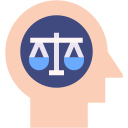AI and Ethics: Balancing Progress with Responsibility
Artificial Intelligence (AI) is rapidly transforming societies, industries, and everyday life. As these systems become smarter and more integrated into decision-making processes, questions about ethics grow increasingly urgent. The intersection of AI and ethics requires thoughtful consideration, not only to harness technology for good but also to guard against potential harm. Balancing innovation with responsibility means understanding both the benefits and the risks, ensuring that advancements serve humanity as a whole.


Incorporating fairness into AI systems means actively managing and mitigating biases that can be present in data or algorithms. AI models trained on historical data risk perpetuating inequalities if left unchecked. Addressing fairness ensures that these systems do not replicate discriminatory patterns or create unjust disadvantages. This often involves interdisciplinary collaborations, constant audits, and mechanisms for recourse, giving people confidence that AI will serve the many rather than the few.

Trust is essential if AI is to be widely adopted and positively influence society. Transparent systems, clear communication about AI capabilities and limitations, and reliable performance all contribute to public trust. When organizations prioritize trustworthy practices, individuals are more likely to engage comfortably with AI-powered technologies, such as healthcare diagnostics or autonomous vehicles, knowing that ethical considerations are at the core of these innovations.

A significant ethical dimension involves preserving individual autonomy in the presence of intelligent systems. As AI makes more decisions, it is vital that people maintain agency over their own lives, from privacy choices to the ability to challenge algorithmic outputs. Respecting autonomy upholds human dignity and prevents scenarios where automated systems override personal freedoms or make decisions without meaningful human oversight.
Navigating Privacy Concerns
Data Collection and Consent
The foundation of privacy lies in transparent data collection and meaningful consent. Many AI systems rely on volumes of user data to inform their decisions. Ensuring that users understand what data is collected and for what purpose is essential. Companies and organizations must provide clear, accessible options for consent, allowing individuals to make knowledgeable choices about their information. Respecting this boundary is a crucial component of ethical AI deployment.
Risks of Surveillance
Advanced AI systems can now process video, audio, and text data at scale, raising the specter of pervasive surveillance. Whether it is facial recognition in public spaces or the monitoring of online interactions, these capabilities can erode privacy and chill freedoms if misused. Ethical guidelines must address limits on surveillance, clarify acceptable use cases, and enforce strict oversight to prevent abuse and protect civil liberties.
Securing Personal Data
Securing the data that powers AI is vital to maintain trust and prevent harm. Breaches or leaks can expose sensitive personal information, leading to identity theft or other negative outcomes. Robust encryption, access controls, and data minimization strategies are critical components in securing AI systems. Upholding these standards ensures that progress in AI does not come at the expense of personal privacy and security.
The Societal Impact of AI

Impact on Employment
AI-driven automation is transforming the workplace, offering new efficiencies but also creating disruptions in traditional employment sectors. While some jobs become obsolete, new opportunities emerge in fields related to AI development and oversight. Societal adaptation requires proactive measures—such as reskilling, education, and social safety nets—to ensure that workers aren’t left behind. Ethical stewardship means anticipating displacement and providing avenues for dignified transition.

Influence on Social Dynamics
Intelligent systems have the potential to mediate social interactions in both positive and problematic ways. From content recommendation to algorithmically-determined newsfeeds, AI shapes how people access information and connect with others. The risk of echo chambers, misinformation, and manipulation highlights the need for ethical oversight and transparent algorithms. Addressing these impacts is essential to fostering informed, open, and equitable digital communities.

Addressing Inequality
Without deliberate effort, AI may inadvertently deepen existing inequalities—economic, racial, or geographical. Biased datasets, uneven access to technology, and disproportionate benefits flowing to select groups can all exacerbate social divides. Ethical AI development requires targeted interventions to promote inclusion, such as natively supporting diverse demographics and facilitating access for marginalized communities. The goal is to ensure that AI serves as a bridge toward equality, not a driver of new inequities.
